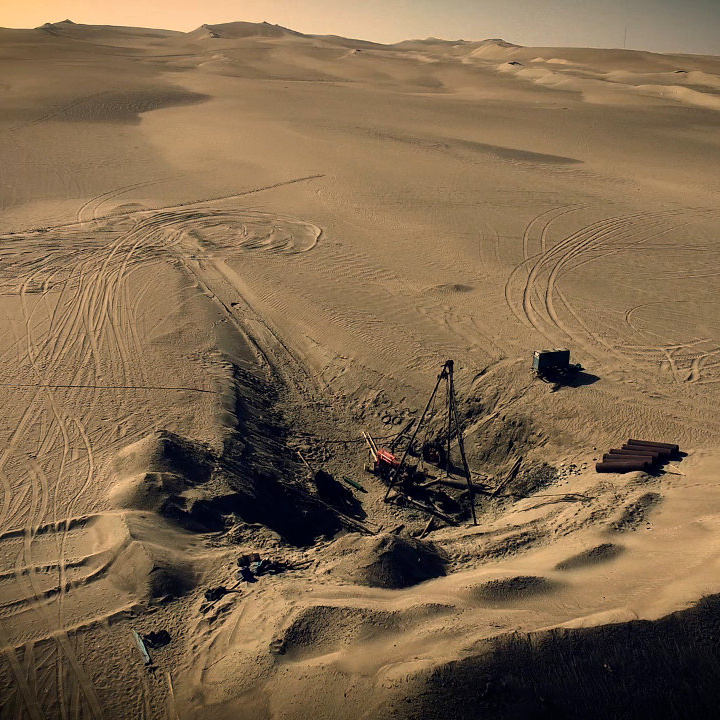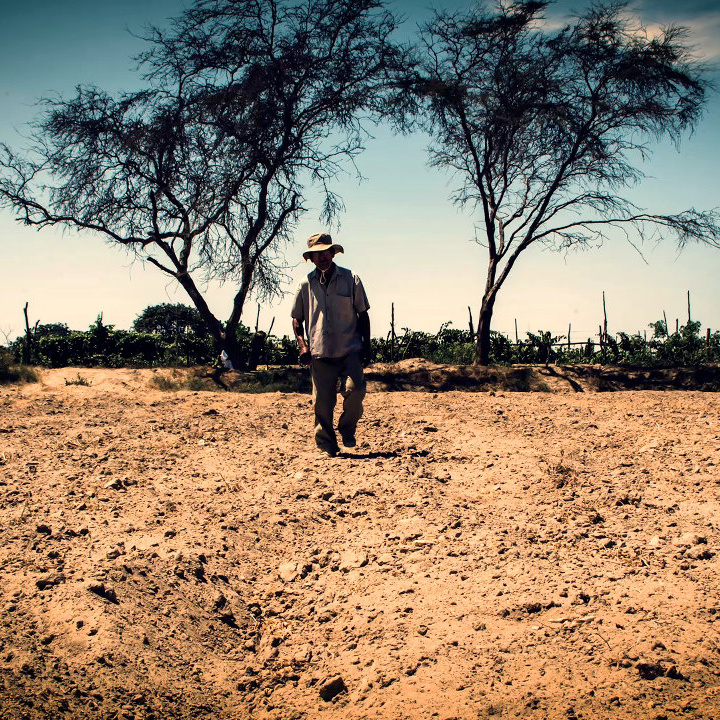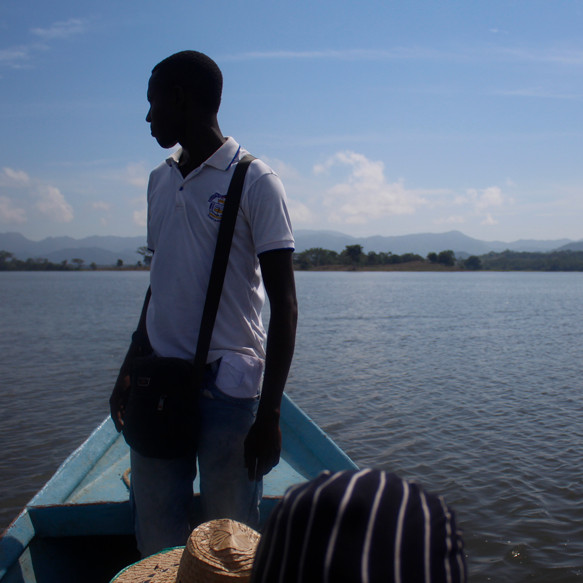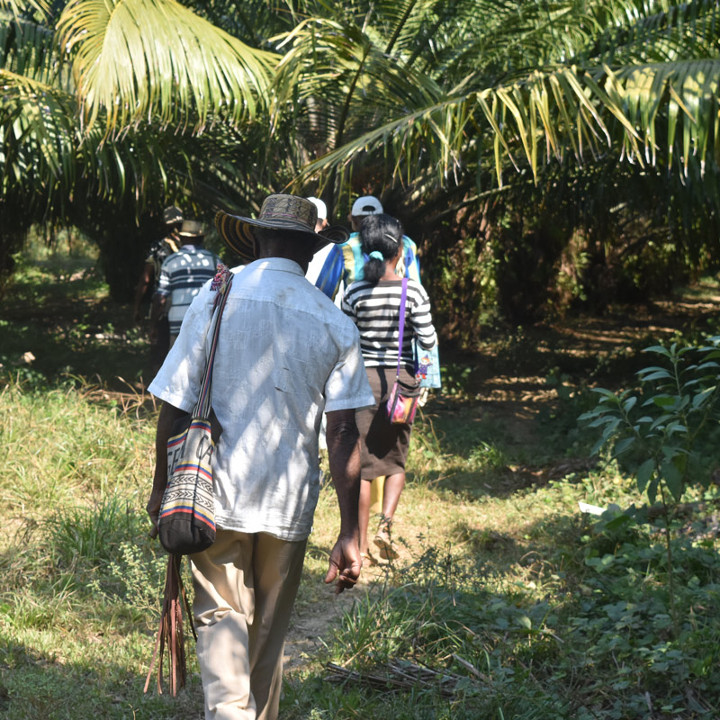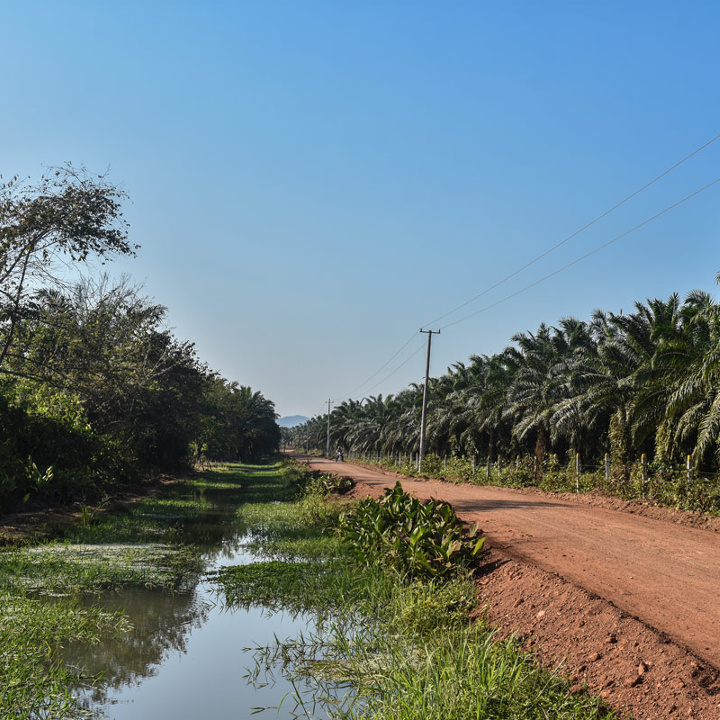On the afternoon of March 2, smallholder José Oyague was walking with a look of concern amongst his table grape vines in San José de Pinilla, a hamlet in the district of Ocucaje located some 28 kilometers from the city of Ica. Using his cloth hat to hide his face from the intense rays of the sun, the tan-skinned farmer looked out over a bleak panorama: all his crops were dry. “We lost this year's harvest,” he told us. The sound of a subsoil water pump that could be heard from his property was a reminder of the inequality of opportunities amongst those who live off agriculture in this region. The well belongs to his neighbor Agrícola La Venta, one of the area’s largest exporters of asparagus and grapes. It has obtained water licenses in recent years despite a state of water emergency in force since 2005.
José Oyague belongs to the Federation of Small Producers and Users in Defense of the Water of the Ica Valley, an organization which attributes the dryness of the fields to the intense extraction of ground water by Agrícola La Venta. This company, owned by businessman Francisco Javier de los Rios Baertl, has 23 licensed wells in Ica: six are located in Ocucaje and the rest in the neighboring town of Santiago. The problem is that the company obtained these licenses through special exemptions issued during periods when the exploitation of new wells here was prohibited. This is according to an analysis by Ojo-Publico.com of resolutions issued in the company’s favor by the National Water Authority (ANA).
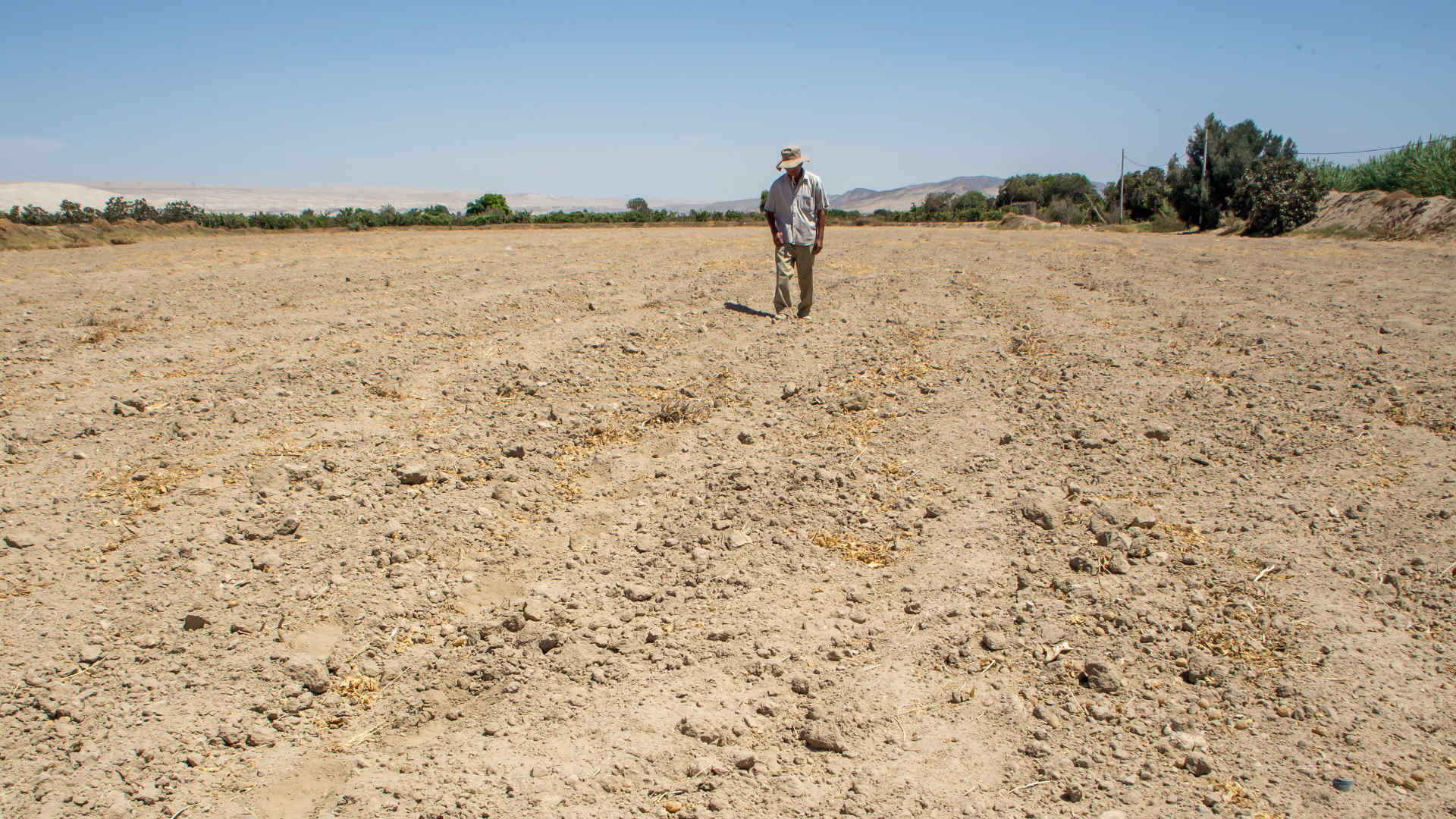
In November 2017 ANA partially lifted the ban on the exploitation of wells in Ocucaje and formalized six Agrícola La Venta bores by transforming the licenses from temporary to permanent. Before being granted this benefit, the company had been forced to pump water from its 16 wells located in Santiago via a nine-kilometer underground pipeline that crosses a river before reaching Ocucaje. Authorizations for the use of these wells were also obtained over the last two years through special legal regimes approved by the Ministry of Agriculture.
Whilst this agro-exporter was gaining land and water, farmers like José Oyague not only lost their grape crops but also the emblematic Ica pallar, which only a decade ago was awarded denomination of origin. More than 3000 hectares of pallar were planted in this region last year. But the quality was affected by the lack of water, according the National Service of Agri-Food Health and Quality. “With the size they have now the pallares look more like beans,” says farmer María Neyra Zevallos as she separates the larger specimens from the smaller ones of her most recent harvest in Ocucaje.
The control of land and water
Due to the huge demand from agro-export companies, groundwater in the Ica region was already at critical levels when Agrícola La Venta set up in the town of Ocucaje in May 2007. The company owned 450 hectares of land in the district but needed wells to irrigate its crops. So it bought part of the land of the now defunct Cooperativa Agrícola San Isidro Labrador, including 16 wells.
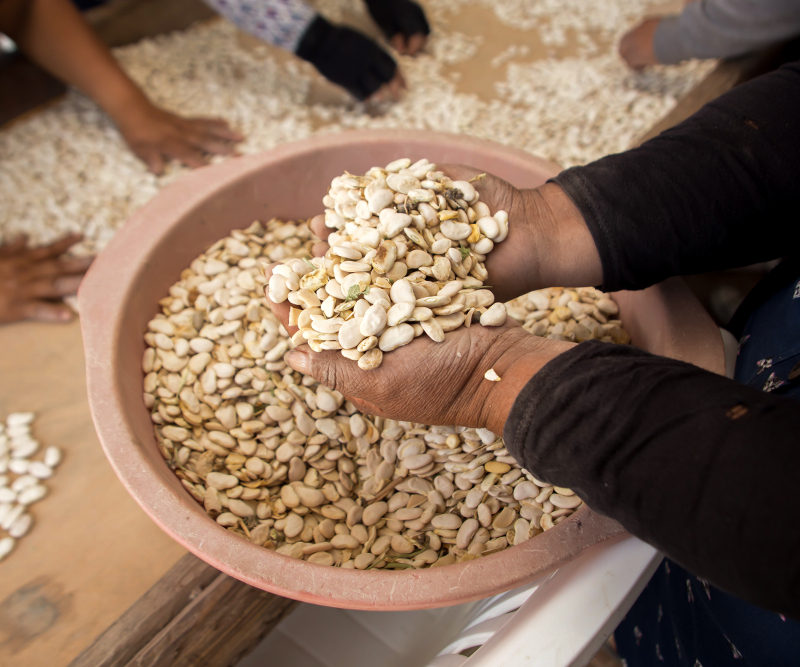
The business came to fruition three years later in the midst of a disagreement within the group of cooperative members. The wells were located in the neighboring district of Santiago, from where the company would transfer the water through a subterranean pipeline. “We sold our blocks for 2000 soles because there was a lot of pressure,” said Maria Neyra Zevallos, current President of the La Banda de Ocucaje Board of Irrigators in an interview with Ojo-publico.com.
Like the majority of agro-exporters in Ica, in mid-2012 Agrícola La Venta purchased land (265 hectares) to continue its expansion. “The concentration of land ownership was a first step to controlling the water”, points out anthropologist Gerardo Damonte, the principal natural resources extractive industries researcher of the NGO GRADE (Analysis Group for Development).


One of his academic studies reveals that between 1994 and 2012 there was a significant change in land ownership in Ica: 25 large companies acquired land on farms in excess of 500 hectares. The concentration of groundwater sources then began in earnest through mechanisms such as the purchase of wells owned by smallholders, the purchase of properties with wells either in operation or suitable for repair, and investments in new drilling in soils sold by the state to promote agro-export.
The beneficiaries: La Venta and Agrokasa
Sisters Antonia and Teresa Chelgue Ormeño collect water in buckets twice a month for two hours. This is the only time in which drinking water is available from the pipes at their homes in San José de Pinilla, one of thirteen hamlets in the district of Ocucaje. What they are able to store must be sufficient both to water their garden and enable their animals to drink. The underground water bore they have owned since 1984 cannot be used.
The Agua Chaparra - Chincha Administrative Authority has denied them a usage license on several occasions. The bore is located just five minutes from the land of Agricola La Venta, which enjoys water from its wells throughout the year. “We are unable to get a permit, but the gentlemen can,” claims Antonia Chelgue.

The way in which Agrícola La Venta obtained its licenses is surprising. In November 2017 ANA ordered for the third time in nine years the partial lifting of a ban on the exploitation of new wells in Ocucaje so that companies with temporary permits for the use of wells could exchange them for permanent ones. The sole beneficiary with this change was Agrícola La Venta, which, in July of that same year, had obtained six temporary authorizations thanks to two supreme decrees in force since 2015.
The company had received a similar advantage when, in July 2008, the Ministry of Agriculture issued an edict that excluded Ocucaje from the subsoil water extraction ban and allowed users of informal wells in other areas of Ica to obtain licenses. This enabled Agrícola La Venta to formalize 16 wells over the period November 2008 to February 2009 in the district of Santiago and irrigate 450 hectares of asparagus and pomegranate. Over that same period the agro-export businessman Ismael Benavides was agriculture minister in Alan García's government.

The same benefit was granted to the Agrokasa company, linked to the current director of the Central Reserve Bank and Secretary General of the Fuerza Popular political party, José Chlimper Ackerman. This grape, asparagus, and avocado agro-exporter has 1,200 hectares of crops in Ica and turns over US$30 million per year, according to the reports of the Association of Exporters. Agrokasa has 13 licenses in Ocucaje for the extraction of water that were also approved through extraordinary regulations at the height of the water emergency in Ica.
Ojo-Publico.com requested interviews with representatives of Agrícola La Venta and Agrokasa to hear their perspective, but our emails or phone calls to their offices have gone unanswered since February.
The plant that never worked
From the camera of the drone at a height of more than 100 meters, the used water treatment plant of Ocucaje looks like a dry lake. Although it was inaugurated by the district municipality in March 2015, the infrastructure is not operational, which is why the area has potable water just twice a month for only two hours each. Ojo-Publico.com visited the district in February and confirmed that the plant was not working.
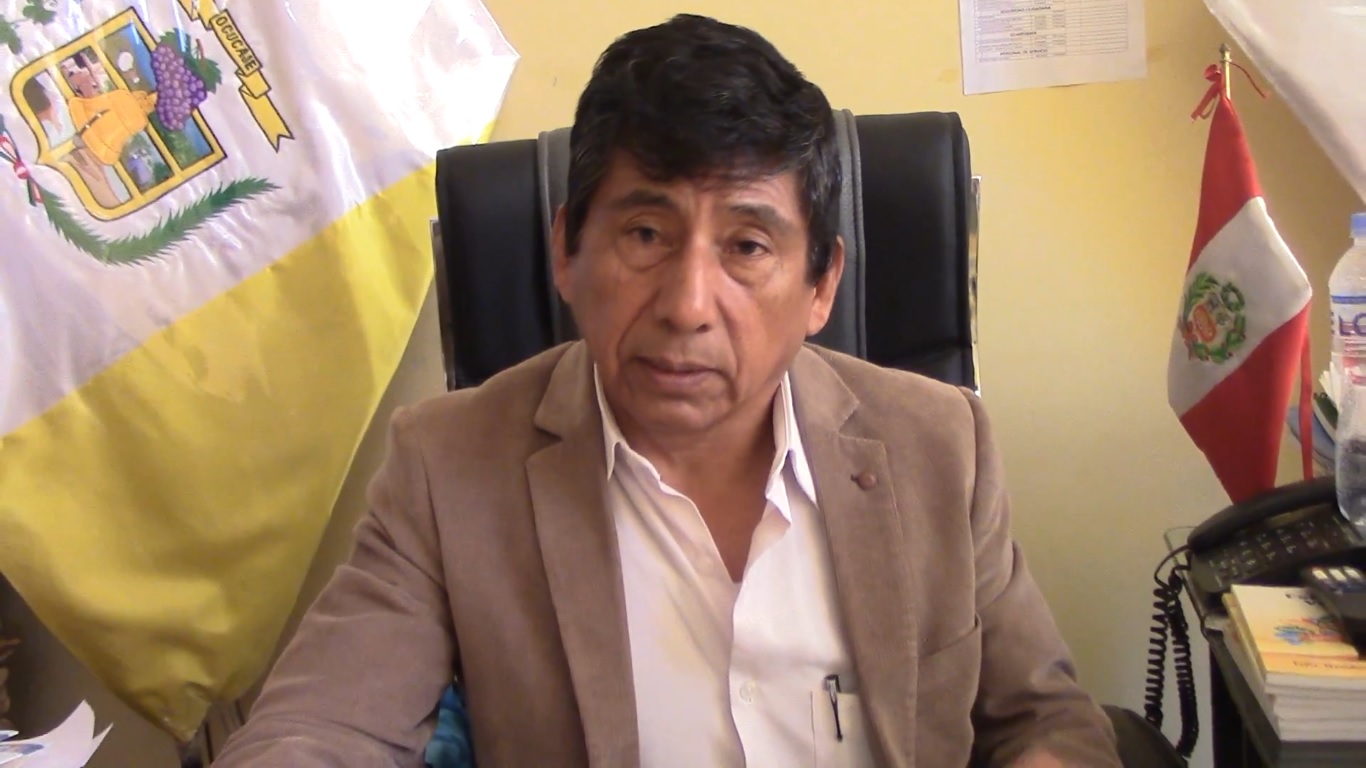
The facility is the responsibility of the mayor Pablo Albites, who awarded the construction contract to the Ocucaje Consortium for 5.9 million soles in January 2015. Albites is in the final year of its second consecutive term in this district. Although he did not grant us an interview, he did provide provide the following statement to Ica’s Correo newspaper in January: “It is false to say that the plant has been neglected and is unusable. The pumping chamber switches on automatically whenever it fills with water and does not need to be on all day long.” When we contacted the Ministry of Housing, Construction and Sanitation to inquire about the state of the plant they pointed out that it was under municipal administration and no longer the ministry’s responsibility.
The water shortage in Ocucaje has already affected local employment and led to migration of its inhabitants. Until just a few years ago this was a town famous for its production of the pallar: farmers could produce between 20 and 25 bags of the legume per hectare. However, the most recent harvest season saw production drop to just five bags. The decrease in size of the bean means that it is no longer attractive for export and many farmers sell off their harvest at very low prices. “We are sad to see how our investment has been lost,” says María Neyra Zevallos.
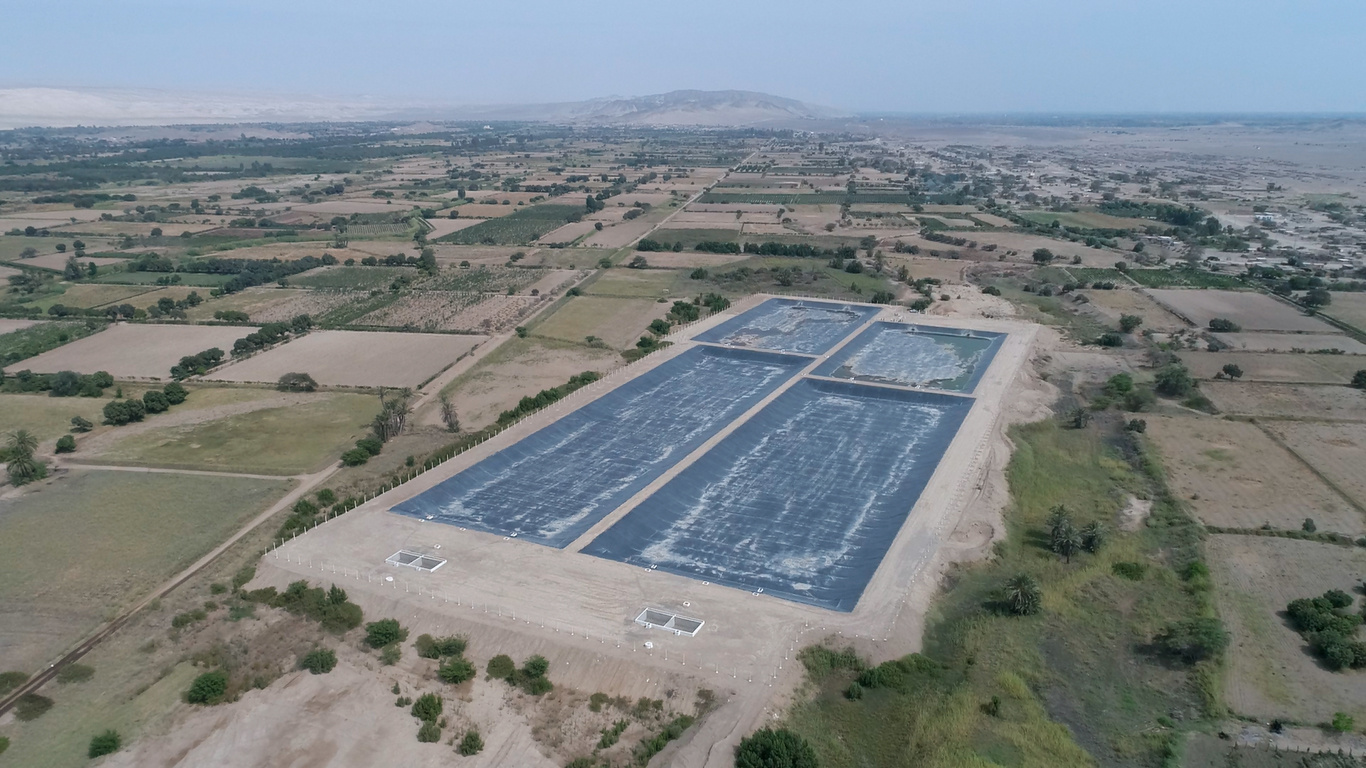
The situation is serious because farmers are beginning to have difficulty paying back the loans they took out for their production. The income is insufficient to cover their basic needs and they are forced to look for work in Pisco or Chincha. Although the majority do find temporary employment with the large agro-exporters, they work is strenuous and the remuneration poor.
The small farmers of Ocucaje like José Oyague feel forgotten by the authorities. His only well is 12 meters deep and at this level it is no longer possible to find water. The agro-export companies drill to 100 meters or more using expensive equipment. “We are being left with nothing,” says Santos Cerrato, President of the Federation of Small Producers and Users in Defense of the Water of the Ica Valley. Water is a resource that is now accessible only to large-scale farmers.

